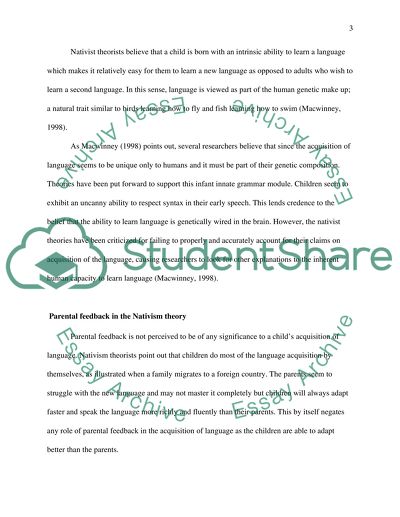Cite this document
(“Language Acquisition Essay Example | Topics and Well Written Essays - 2500 words”, n.d.)
Retrieved from https://studentshare.org/education/1526748-language-acquisition
Retrieved from https://studentshare.org/education/1526748-language-acquisition
(Language Acquisition Essay Example | Topics and Well Written Essays - 2500 Words)
https://studentshare.org/education/1526748-language-acquisition.
https://studentshare.org/education/1526748-language-acquisition.
“Language Acquisition Essay Example | Topics and Well Written Essays - 2500 Words”, n.d. https://studentshare.org/education/1526748-language-acquisition.


